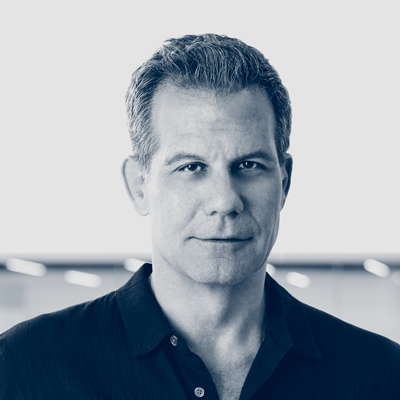Topics
MIT SMR Strategy Forum
You don’t need to look far to find headlines about the need to “break up” Big Tech. And it’s easy to see why: The power of technology platforms looms large over global economies and society. Democratic presidential candidate Elizabeth Warren has made dismantling companies like Amazon and Facebook one of her central platforms. Attitudes toward antitrust have even begun to shift at leading academic institutions associated with the hands-off ideology that has long benefited companies like Facebook, Google, and Amazon in their rise to dominance.
But will new antitrust laws and intervention be the way forward? We asked our panel of strategy experts to tell us how strongly they agree with the following:
Antitrust policy should intervene more decisively to limit the scope of large technology platforms.
■
Raw Responses
■
Responses weighted by panelists’ level of confidence
Panelists
| Panelist | Vote | Confidence | Comments |
|---|---|---|---|

|
Strongly Disagree | 8 | “I interpret ‘limiting scope’ as not allowing platforms to enter new markets or otherwise restrict their productive activities. This is bad for competition and innovation. Instead, antitrust should focus on making it easier for anyone to provide better products in any market.” |

|
Strongly Agree | 8 | “A part of the problem is economic: Big tech firms are dominating certain key tech fields in ways that limit competition and may suppress innovation. A second part is regional: The geographic concentration of big tech firms is a huge factor in growing spatial inequality. But the biggest part is political: Big tech platforms have damaged the political process in a way that threatens democracy.” |

|
Strongly Disagree | 10 | “Regulators should not ‘intervene more decisively to limit the scope’ of ‘any’ industry without a clear theory of harm — and even more so for emerging technologies that are still developing at a dizzying pace. Large companies should attract the scrutiny of regulators, but these regulators must focus on conduct that inflicts clear harm rather than be concerned with size and scope for their own sake.” |

|
Neither Agree nor Disagree | 7 | “There are novel and disparate challenges for economics and society created by platform technologies. While antitrust policy can be useful in some cases, it is often the wrong tool for addressing other challenges. This is especially true when policy makers don't yet understand the principles of digital, networked, platform economics, which can create unintended outcomes.” |

|
Agree | 8 | “Platforms are clearly able to leverage their power across services — an antitrust issue. But I am not sure that we have a good handle on the extent to which their ability to do so hurts consumers. But it probably reduces the variety of services available and may slow innovation.” |

|
Agree | 10 | “Antitrust enforcement in the 1960s was probably excessive (e.g., Von’s, 1966), but we’ve swung the other way and have let hundreds of ‘potential competition’ cases through without adequate scrutiny. WhatsApp/Facebook and Amazon/Zappos are particularly egregious, but so are the technology acquisition mergers that solidified the leaders' AI technologies. Broadband and smartphone tech are problematic.” |

|
Neither Agree nor Disagree | 8 | “While antitrust should be far more proactive promoting competition among platforms, we are asking too much of antitrust to address the main policy challenges — privacy, distortions from ad platforms, misinformation. For example, the player with arguably the most ‘traditional’ market power (Apple) attracts arguably the least antitrust concern. We need regulation directly addressing core issues.” |

|
Neither Agree nor Disagree | 9 | “Historically, established firms innovated when that was the only way to growth. Limit scope if that happens through M&A. Allow growth when this is through creation of new products.” |

|
Agree | 6 | “The Microsoft/Netscape case suggests Facebook should not have been allowed to buy Instagram or WhatsApp. However, in my view, the socially damaging effects of technology platforms such as Facebook are probably best dealt with through regulation rather than antitrust. The Cambridge Analytica scandal was not an antitrust issue nor are Russian bots or the spread of political disinformation.” |

|
Neither Agree nor Disagree | 5 | |

|
Agree | 8 | “I’m sure that we need to update antitrust policy to take account of the dynamics inherent in modern platforms. Whether that automatically leads to vigorous intervention is a much tougher question. I suspect that there are cases where it should, but the devil is in the details....” |

|
Strongly Disagree | 9 | “Platforms operate in markets with network externalities. A significant benefit to consumers comes from such platforms having large market share. Moreover, most current platforms have very limited pricing power, so consumers do not seem harmed by market share per se. I would focus more on data ownership and privacy concerns.” |

|
Agree | 7 | |

|
Agree | 7 | “Antitrust policy is insufficiently developed to deal with the interrelationships between skill and market power in the achievement of monopolies on tech platforms. A new conceptual framework for antitrust is needed.” |

|
Neither Agree nor Disagree | 7 | “There clearly needs to be greater regulation of the tech giants such as around privacy, ‘fake news,’ and disruption of democratic political processes. That said, antitrust seems too extreme at this stage of discussion.” |

|
Agree | 8 | “This is a sweeping statement, but on balance I agree (and especially so if mobile carriers are included among the ‘large tech platforms’). For some problems, such as privacy, regulation may beat antitrust. But we should toughen up on platform merger review and policing exclusionary practices.” |

|
Neither Agree nor Disagree | 8 | “Antitrust is best at facilitating the potential for entry. It can limit an established firm’s ability to close distribution channels. It can stop said firm from locking up resources from new entrants. ‘Limiting the scope’ of big tech firms might be one of many things antitrust can aim to do as part of these broad aims. However, there are many others as well.” |

|
Agree | 7 | “Compare to the Bell System pre-divestiture ... same network effects but very different welfare issues, which will increase resistance to intervention. Note the statement said ‘should,’ not ‘will’!” |

|
Disagree | 5 | “Antitrust should intervene if there’s evidence of anticompetitive behavior.” |

|
Strongly Agree | 10 | “The most prosperous places benefit from benign localized external increasing returns combined with monopoly power that holds other places back by effectively taxing other activities; restricting use of knowledge and degrading capabilities; diverting capital from other firms and regions and exerting income inequality. See M. Feldman, F. Guy and S. Iammarino.” |

|
Disagree | 6 | “My ‘no’ is, in fact, a ‘not yet.’ This is an area at the intersection of strategy, economics, and policy that is in need of pragmatic models and rigorous empirical evidence. We need these theoretical and empirical tools to be developed before intervening with business models that are still largely opaque to the regulators.” |

|
Agree | 7 | “Some of the platforms are becoming an essential facility. Others are not doing enough to prevent fraudulent sales on their sites. And some are denying any responsibility for malicious content on their sites.” |

|
Disagree | 7 | “Limiting the scope would not be the correct policy as economies of scope would ensure technologies and markets are developed by large technology platforms. I would worry more about technologies that do get acquired and are not developed, as they would limit future competition.” |
About the MIT SMR Strategy Forum
Questions of strategy are universal: Every business leader must tackle a topic that’s central to how and why organizations compete. The MIT Sloan Management Review Strategy Forum offers a regular glimpse into the minds of academic leaders who have been researching and observing how businesses determine their strategy for decades.
Each month, the MIT SMR Strategy Forum poses a single question to our panel of experts in the fields of business, economics, and management. Panelists are asked to agree or disagree with a prediction, indicate their level of confidence, and provide a brief explanation for their response.
This page allows readers to engage with the results of each survey. You can see the share of panelists who agree or disagree with each prediction, how confident they feel about their answers, and the thinking behind their responses. To explore individual panelists’ thought processes about each question, click through to their voting history page. Readers can also submit their own suggestions for future topics to smr-strategy@mit.edu.
Forum Chairs
Raffaella Sadun is a professor of business administration in the Strategy unit at Harvard Business School. Professor Sadun’s research focuses on the economics of productivity, management, and organizational change. Her research documents the economic and cultural determinants of managerial choices, as well as their implications for organizational performance in both the private and public sectors (including health care and education). She tweets @raffasadun.
Timothy Simcoe is an associate professor of strategy and innovation at Boston University’s Questrom School of Business.

Comment (1)
Saradhi Motamarri